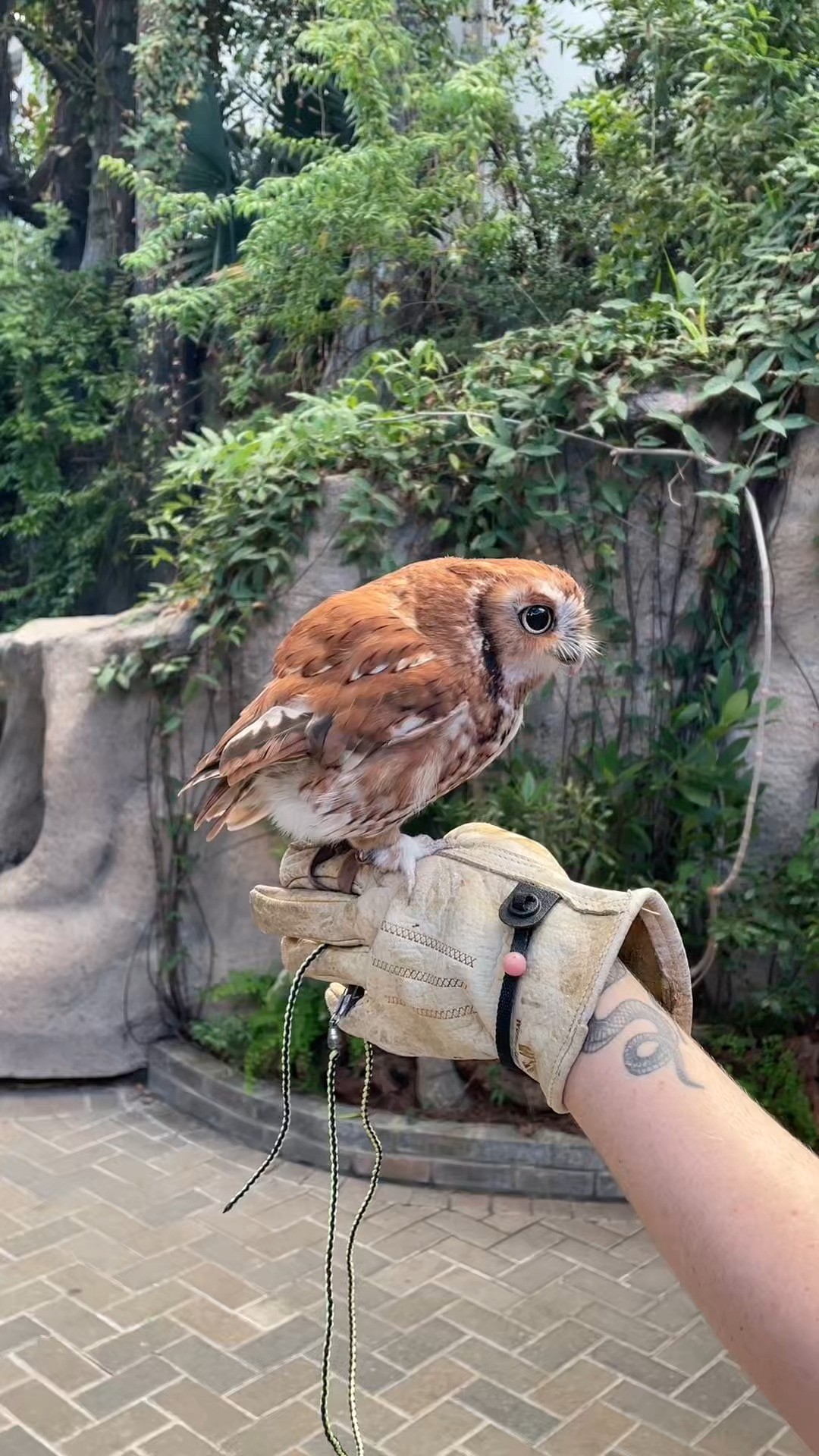- The significance of National Bird Day and its role in raising awareness for avian conservation.
- A deep dive into the biology and characteristics of the Eastern Screech Owl, featuring Napoleon, the Animal Ambassador.
- The role of birds like the Eastern Screech Owl in ecosystems and their conservation status.
- Insights into zoo management practices focusing on accreditations, visitor education, and wildlife care.
- How individual animal ambassadors contribute to wildlife conservation efforts and public education.
National Bird Day, observed annually on January 5th, is a day dedicated to celebrating and protecting the avian species that enrich our natural world. It serves as a platform to educate the public about the challenges birds face and the importance of conserving their environments. Advocates use this day to highlight habitat destruction, climate change, and the illegal pet trade’s impact on bird populations. By raising awareness and promoting bird-friendly practices, National Bird Day aims to foster an appreciation for bird biodiversity and inspire conservation efforts.
Owls are particularly captivating among the wide array of bird species. Napoleon, an Eastern Screech Owl, shines as an exceptional ambassador for his species. Eastern Screech Owls (Megascops asio) are small, nocturnal raptors native to the eastern United States. Recognizable by their distinct ear tufts and varied coloration—ranging from gray to rufous—they exhibit excellent camouflage, blending seamlessly into tree bark. Their haunting calls, often heard in wooded areas, are reminiscent of a horse’s whinny or a soft trill, adding to their mystique.
Napoleon’s role as an animal ambassador involves engaging with the public to raise awareness of his species’ ecological attributes. This includes their role as predators, controlling pest populations by consuming insects and small mammals. Such biological interactions highlight the Eastern Screech Owl’s importance in maintaining ecological balance within their habitats. Unfortunately, these owls face environmental threats, including habitat loss due to urban expansion and the use of pesticides, which can disrupt their food sources.
In addressing these conservation issues, wildlife experts emphasize the importance of creating and preserving natural habitats for these owls. Efforts such as establishing birdhouses designed to mimic natural cavities can provide critical nesting spaces. Protecting wooded areas and supporting conservation organizations are actionable steps individuals can take to assist in conserving these fascinating owls.
Zoo management plays a pivotal role in wildlife conservation and education. Accredited zoos adhere to strict standards of animal care, safety, and education set by organizations like the Association of Zoos and Aquariums (AZA). These institutions offer valuable learning opportunities for visitors, fostering a greater understanding and appreciation for wildlife. They provide a sanctuary for injured or non-releasable animals, offering a second chance for those who would struggle to survive in the wild.
Educational programs led by animal ambassadors like Napoleon are integral to zoos’ missions. By sharing these animals’ stories, zoos inspire visitors to engage in conservation efforts. These interactions build emotional connections, fostering an understanding that collectively promotes the preservation of avian biodiversity.
Napoleon exemplifies how animal ambassadors can influence public perception and inspire action. Through outreach programs, both virtual and in-person, Napoleon helps illustrate the challenges faced by Eastern Screech Owls and other wildlife species. Programs may include live demonstrations of their natural behaviors, showcasing adaptations that allow them to thrive in their native habitats. This not only enriches the learning experience but also highlights the necessity for ongoing research and conservation.
Efforts to conserve species like the Eastern Screech Owl require a collective commitment. Community involvement, such as participation in local conservation projects or backyard habitat improvements, can make a significant impact. Educational initiatives on National Bird Day and beyond encourage a sense of stewardship, motivating people to protect the natural environments that wildlife depends on.
Thriving ecosystems play a crucial role in the broader environmental picture. Birds such as the Eastern Screech Owl contribute to biodiversity, offering ecological services that affect human life. Their presence controls insect populations, enabling healthier forests and agricultural lands. Thus, every measure taken toward conserving these species indirectly benefits our ecosystem’s health.
On National Bird Day, advocates and enthusiasts alike have the opportunity to engage in celebrating and protecting avian species. Participating in birdwatching events, supporting bird-friendly legislation, and promoting conservation education remain integral activities. Such proactive steps lay the groundwork for a future where birds like the Eastern Screech Owl soar freely through our skies, unburdened by the threats that currently loom.
In summary, National Bird Day serves as an important reminder of our responsibility to preserve avian biodiversity. Through informed action, public education, and the dedication of ambassadors like Napoleon, we can create a sustainable future for the wildlife that shares our planet. By working together, we ensure that these magnificent creatures continue to grace our world with their presence, enriching our lives and ecosystems alike.
*****
Source Description
Happy National Bird Day! 🦅🦩🦢 Learn owl about Napoleon, our Easter Screech Owl Animal Ambassador! ✨🦉✨


